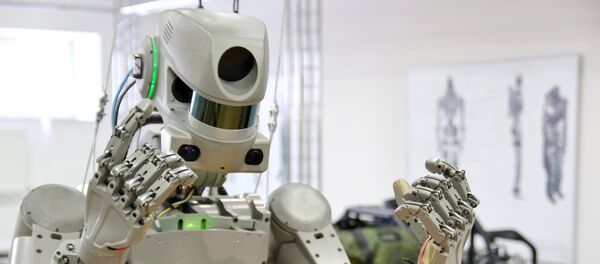Shea took part in a panel discussion held within the framework of the 5th Global Conference on Educational Technology #EdCrunch2018, organized by the National University of Science and Technology MISiS (NUST MISiS) and the National Technology Initiative University 20.35.
Artificial intelligence is now actively developing; we can observe this process in various spheres of life. However, so far it has failed to make any considerable progress in the field of education, Shea said, noting that, teachers will remain an integral part of the educational process in the future. Computers can perform many jobs, but they cannot fully replace a teacher by just introducing adaptive learning to the students.
READ MORE: Artificial Intelligence: What to Expect From Smart Hardware?
Shea believes that in practice, any ordinary school can efficiently introduce Big Data to the educational process. He noted that at the school where he is working, all the educational programs are personalized, and good results are achieved by using Big Data content for the benefit of education. He also noted that in this case, the use of such content in the educational process is a means of development rather than a final goal, and that this development must take place not only at schools, but outside of them as well. This helps teach children to be conscientious citizens and wholesome people. We are trying to make this content a conductor between what we have here at school and what happens beyond it, he added.

School students, teachers and computers participate equally in the educational process. Every student has a computer, while every class has one teacher. Shea believes that computers free teachers from explaining certain things that can easily be done by a computer (such as, for instance, a spelling dictionary or mathematical data). If a computer can explain it, it should be doing that. But the teacher must coordinate the entire process.
READ MORE: Will Artificial Intelligence Bring Karl Marx's Ideas to Life?
Shea believes that digital schools have both advantages and disadvantages. We have a great number of positive reviews from our former students. Young people say that this way of learning made them more organized, made the process of choosing a further education trajectory significantly easier plus taught them time management.
The American expert also noted that schools in his district have completely abandoned the grade system, switching over to a goal system instead: in order to achieve a certain goal, a student must first perform a certain amount of assignments with every next assignment becoming more difficult than the previous one. As soon as the students achieve these goals, they start preparing themselves for the next ones. Shea states that the abandonment of the grade system positively affected the students' academic performance. He is convinced that the goal system is more effective than the grade system.


